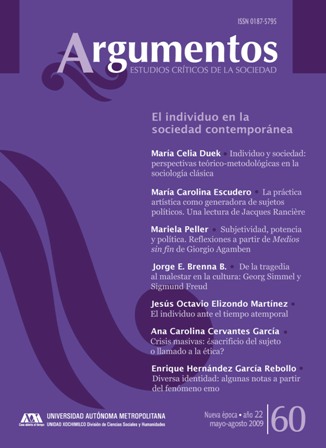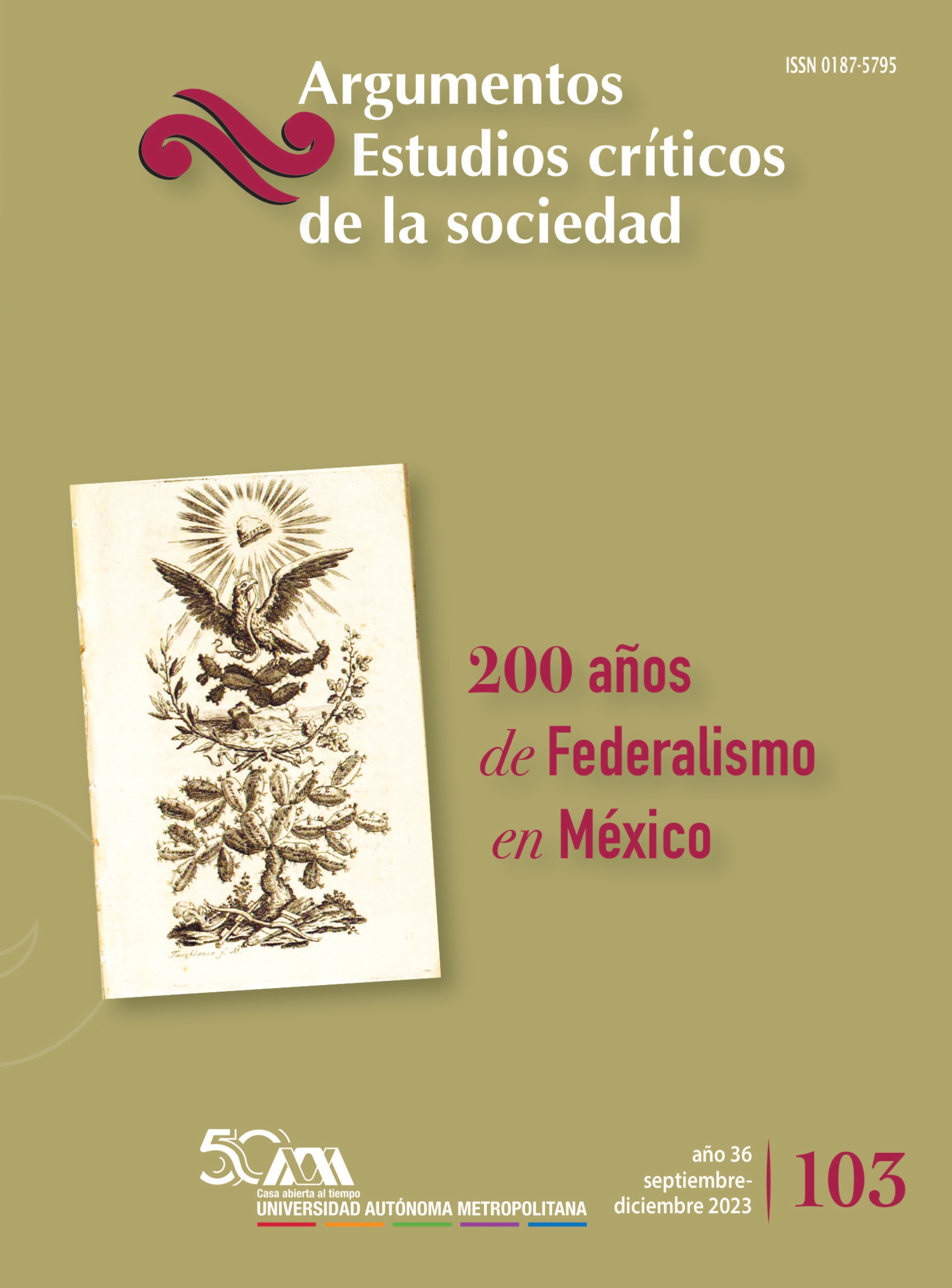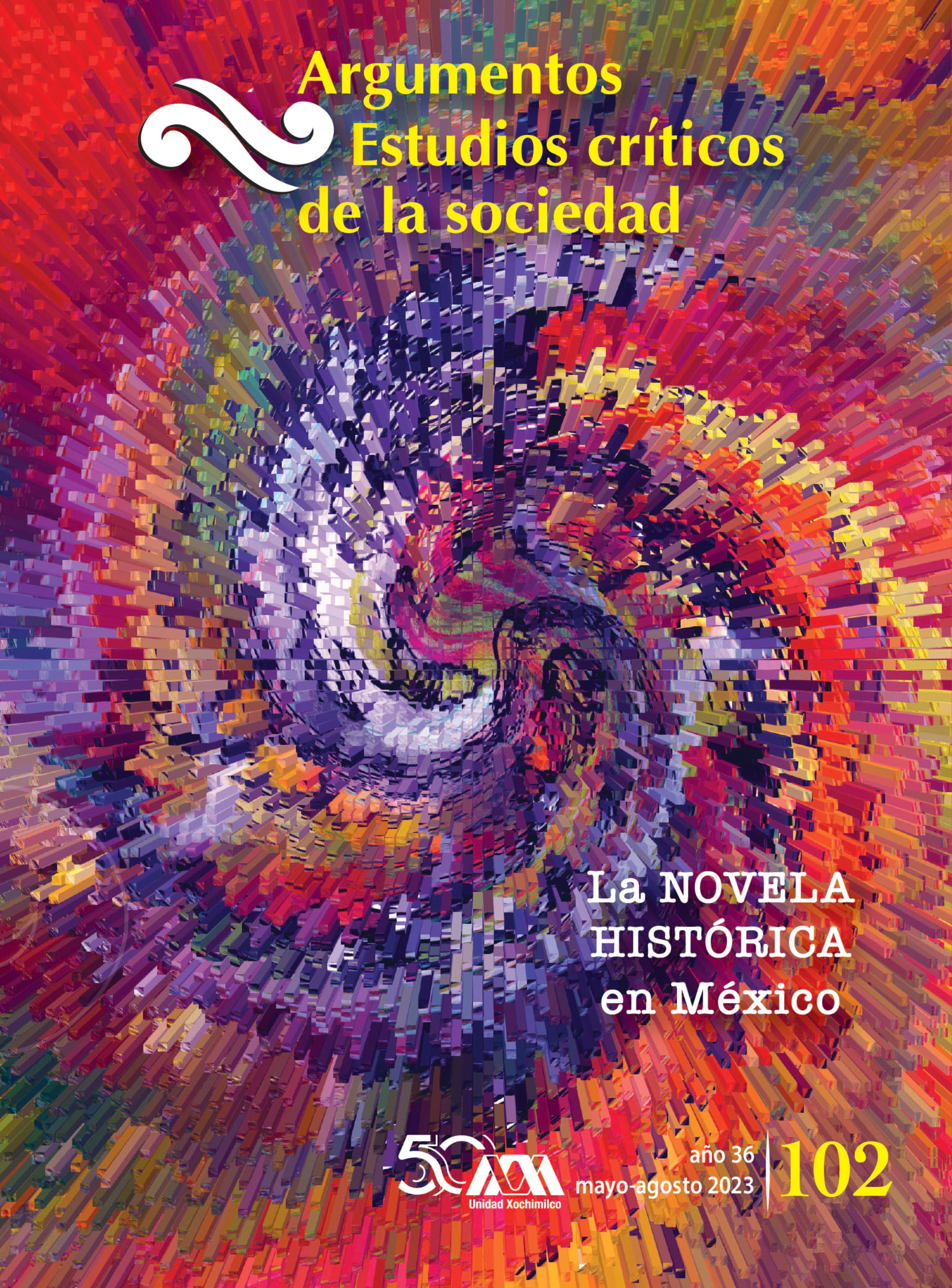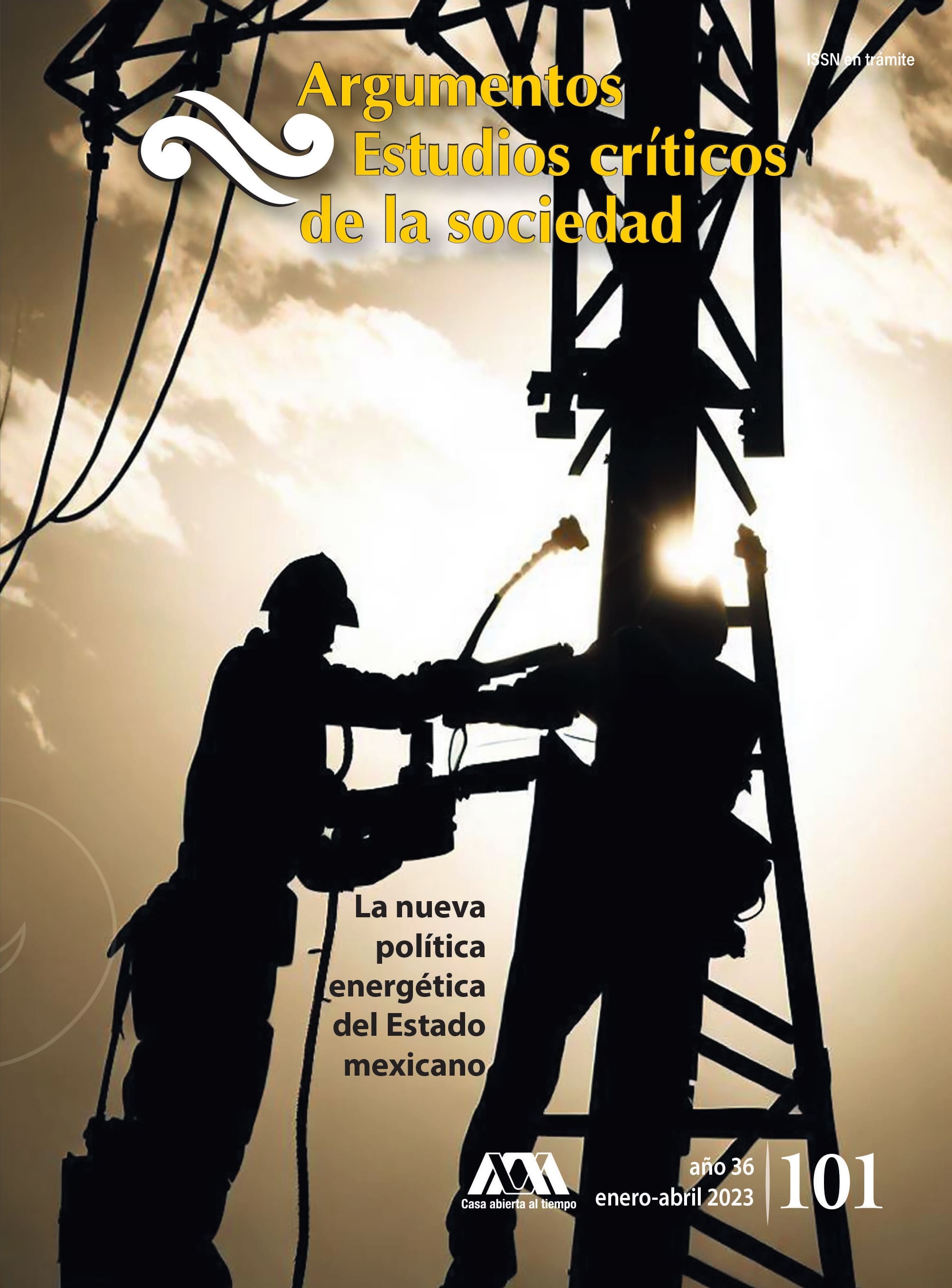En busca del sujeto perdido
Inteligancia artificial
Abstract
The article presents an alternative proposal that analyzes the notion of subject in the postmodernity in the movie Artificial Intelligence of Spielberg-Kubrick. On it, the authoress give us a tour within the history of the “subject”, concept aiming at the features that have highlighted the term across times and philosophies. In order to illustrate it, she recaptures the aristotelican roots of this notion, as well as the Cartesian, Freudian and Hegelian bases of “self ”. The research includes, also, reflections that, with the pretext of the movie, will lead us to try new definitions of the individual in current times.
References
Ayala Blanco, Jorge, Falaces fenómenos fílmicos, México, Posada, 1988, 343 p.
Bauman, Zygmunt, Intimations of Postmodernity, Londres, Routledge, 1992, 232 p.
——, Modernidad líquida, México, Fondo de Cultura Económica, 2003, 232 p.
Baudrillard, Jean, Pantalla total, Barcelona, Anagrama, 2000, 239 p.
Berman, Marshall, Todo lo sólido se desvanece en el aire. La experiencia de la modernidad, México, Siglo X XI Editores, 1991, 386 p.
Búfalo, Enzo del, La genealogía de la subjetividad, Caracas, Monte Ávila, 1992, 176 pp.
Cahoone, Lawrence, From Modernism to Postmodernism. An Anthology, Oxford, Blackwell pu-blisher, 1996, 733 p.
Connor, Steven, Postmodernist Culture. An Introduction to Theories of the Contemporary, Oxford, Blackwell Publishers, 1997, 328 p.
Deleuze, Pilles, La imagen-Tiempo. Estudios sobre cine 2, Barcelona, Paidós Comunicación, 1987, 391 p.
Díaz, Esther, Posmodernidad, Argentina, Biblos, 1999, 157 p.
Foucault, Michel, La hermenéutica del sujeto, Argentina, Altamira, 2002, 125 p.
González Rey, Fernando Luis, Sujeto y subjetividad: una aproximación histórico-cultural, México, Internacional Thomson, 2002, 248 p.
Habermas, Jürgen, El discurso filosófico de la modernidad: Doce lecciones, Madrid, Taurus, 1989, 462 p.
Harvey, David, La condición de la posmodernidad. Investigación sobre los orígenes del cambio cultural, Argentina, Amorrortu, 1998, 401 p.
Heller, Ágnes, Sociología de la vida cotidiana, Barcelona, Península, 2002, 887 p.
Ibáñez, Jesús, El regreso del sujeto. La investigación social de segundo orden, Madrid, Siglo X XIEditores, 1994, 193 p.
Jáidar Matalobos, Isabel et al., Tras las huellas de la subjetividad, México, Universidad Autónoma Metropolitana, Unidad Xochimilco, 2003, 234 p.
Jameson, Fredrich, Teoría de la postmodernidad, Madrid, Trotta, 1996, 340 p.
Lyotard, François, La postmodernidad (explicada a los niños), México, Siglo X XI Editores, 1989, 124 p.
Millán Puelles, Antonio, La estructura de la subjetividad, Madrid, Rialp, 1967, 426 p.
Rappe, Silvia y Martha Rivero, Modernidad, posmodernidad: una discusión, México, Universidad Autónoma Metropolitana, México, 1993, 232 p.
Ricœur, Paul, Sí mismo como otro, México, Siglo X XI Editores, 1996, 415 p.
VIDEOGRAFÍA
Título original: A.I. Artificial Intelligence.
Producción: Dreamworks Skg, Warner Bros. Pictures, Amblin Entertaiment.
Año: 2001.
País: Estados Unidos.
Director: Steven Spielberg.
Guión: Steven Spielberg e Ian Watson (Historia: Brian Aldiss).
Música: John Williams.
Fotografía: Janusz Kaminski.
Reparto: Haley Joel Osment, Jude Law, Frances O’Connor, Brendan Gleeson, William Hurt, Jake Thomas, Sam Robards.








